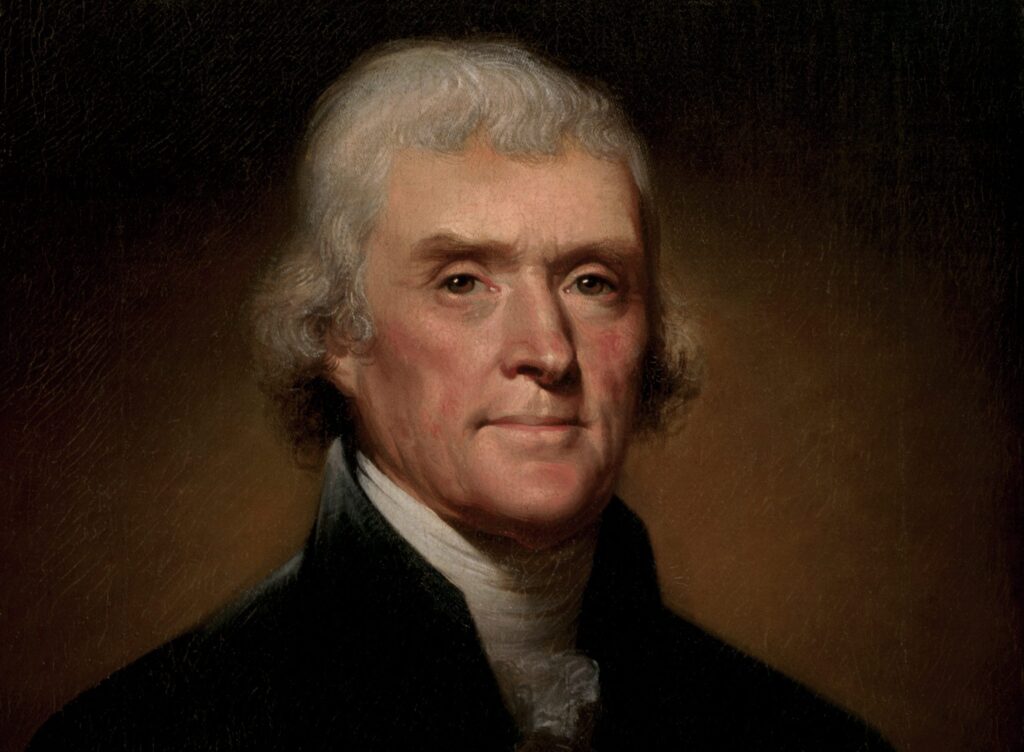Introduction
This letter is part of our Four-Act Drama, a Constitutional Convention role-playing scheme for educators. For more information on our comprehensive exhibit on the Constitutional Convention, click here.
The discussions in June and July allowed delegates to develop a new structure for the government, marking a departure from its organization under the Articles of Confederation. With the creation of a bicameral legislature, delegates focused on defining Congress’ powers and its relationship to state governments. While there was consensus on granting greater authority to the central government, delegates disagreed on the extent of congressional power and its impact on the sovereignty of state governments. The expansion from a single branch of government to three also prompted complex discussions about the separation of powers within the central government.
Throughout the continued deliberations, slavery emerged as a divisive topic, particularly concerning Congress’ authority to regulate or abolish it. The Committee report prohibited Congress from regulating the slave trade or discouraging it through taxation, though this language would differ in the final draft of the Constitution (see Article I, Section 9, Clause 1). While correspondence after the two-week break does not specifically mention the slavery debate, Madison’s notes indicate that it was a central topic during the third week of August. For further information regarding slavery’s treatment at the Convention, see debates on representation, the slave trade, and the fugitive slave clause.
As these broader discussions unfolded, delegate correspondence revealed continued frustrations with the prolonged Convention timeline. Many had initially anticipated a brief meeting to revise the Articles of Confederation, but as the Convention stretched into its third month with no clear end in sight, some delegates grew increasingly frustrated with the slow pace of progress. Adding to these frustrations were tensions among delegates, driven largely by conflicts between large and small states and differing regional interests.
Uncertainty also emerged regarding public reception of the proposed government. Because of the secrecy rule, outside public opinions regarding the Convention’s work varied. While some delegates expressed concerns about the public’s willingness to approve a framework so vastly different than the Articles of Confederation, others, like Washington, remained optimistic. Washington believed the proposed Constitution was “the best that can be obtained at the present moment under such diversity of ideas as prevail.”
By August 31, delegates concluded their review of the Committee of Detail Report. As the Convention entered its fourth month, setting the scene for the final act of the Four Act Drama, the focus shifted toward the executive branch. Delegates ventured into uncharted territory as they contended with the scope of executive power, ultimately shaping the final framework of the Constitution.
—Michelle Adams Alderfer
Dear Sir
I1 remain in hopes of great and good effects from the decisions of the assembly over which you are presiding. To make our states one as to all foreign concerns, preserve them several as to all merely domestic, to give to the federal head some peaceable mode of enforcing their just authority, to organize that head into Legislative, Executive, and Judiciary departments are great desiderata2 in our federal constitution. Yet with all its defects, and with all those of our particular governments, the inconveniencies resulting from them are so light in comparison with those existing in every other government on earth, that our citizens may certainly be considered as in the happiest political situation which exists.—The assemblée des Notables3 has been productive of much good in this country. The reformation of some of the most oppressive laws has taken place and is taking place. The allotment of the state into subordinate governments, the administration of which is committed to persons chosen by the people, will work in time a very beneficial change in their constitution. The expense of the trappings of monarchy too are lightening. Many of the useless officers, high and low, of the king, queen, and princes are struck off. Notwithstanding all this the discovery of the abominable abuses of public money by the late comptroller general, some new expenses of the court, not of a piece with the projects of reformation, and the imposition of new taxes, have in the course of a few weeks raised a spirit of discontent in this nation, so great and so general, as to threaten serious consequences. The Parliaments in general, and particularly that of Paris put themselves at the head of this effervescence, and direct its object to the calling the states general, who have not been assembled since 1614. The object is to fix a constitution, and to limit expenses. The king has been obliged to hold a bed of justice to enforce the registering the new taxes: the parliament on their side propose to issue a prohibition against their execution. Very possibly this may bring on their exile. The mild and patriotic character of the new ministry is the principal dependance against the extremity.
. . . I have the honour to be with very sincere esteem and respect dear Sir Your most obedient & most humble servant,
TH: JEFFERSON
P.S. Aug. 15. The Parliament is exiled to Troyes this morning.




































































































































































































































![Finley, A. (1829) Pennsylvania. Philada. [Map] Retrieved from the Library of Congress, https://www.loc.gov/item/98688548/.](/content/uploads/2024/02/Map-of-PA--273x190.jpg)



































































































































































































